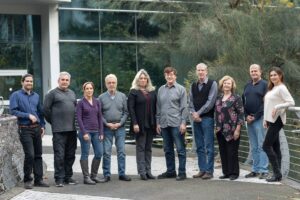One of the main components of chip scale atomic clocks is a vertical cavity surface emitting laser known as the VCSEL, which is used in a variety of applications including cell phones, car sensors and optical communication networks in data centers. When it comes to atomic clocks, the demands on the VCSEL are extremely high, for example working at temperatures close to -100 degrees and providing very high accuracy in the color of the emitted light. These requirements make the development of such VCSELs a particularly complex technological challenge. The VCSEL developed at the Technion meets all these requirements and even exhibits performance that exceeds that of the best lasers in the world today. The VCSEL development breakthrough at the Technion was made as part of an industry-academia consortium initiated by the Israel Innovation Authority. In addition to the Technion, it includes commercial companies such as NVIDIA, SCD, Civan, Accubeat, and PCB, and the Hebrew University of Jerusalem. The consortium arose out of the Innovation Authority’s understanding that VCSELs are a critical component for many Israeli industries and out of recognition that the Technion has the expertise and infrastructure for realization and development at an industrial level.

